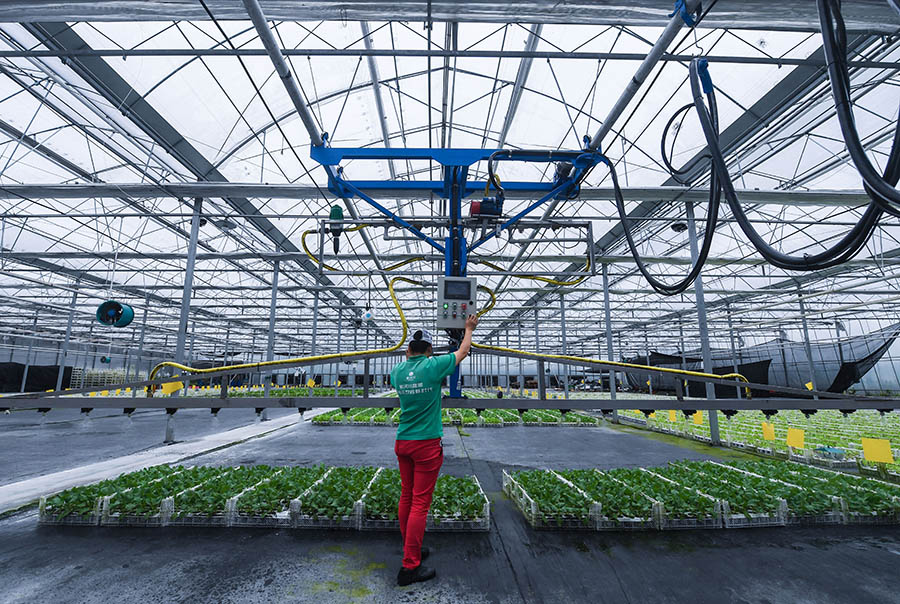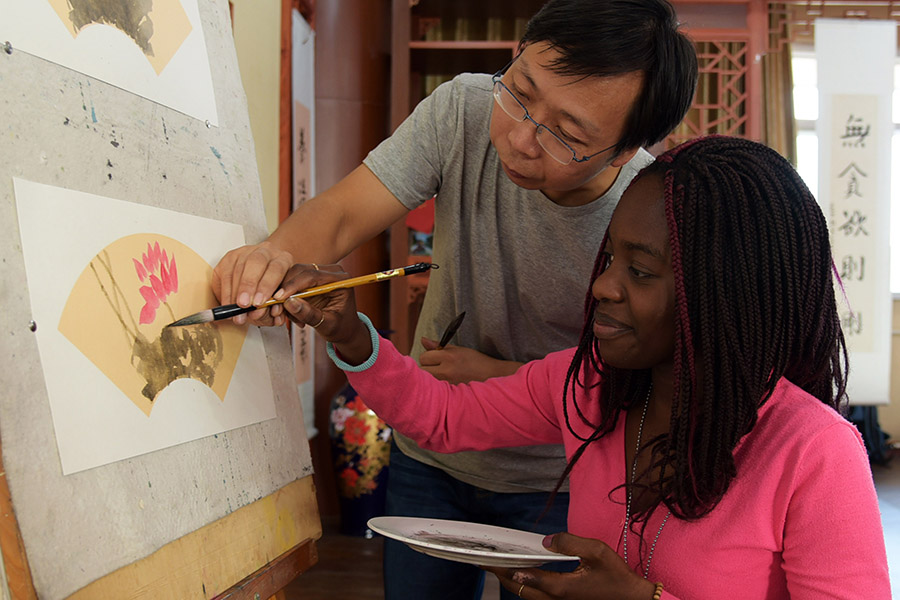Trending Topics at 2018 “Two Sessions”

In March 2018, the 13th National People’s Congress (NPC), China’s top legislature, and the 13th National Committee of the Chinese People’s Political Consultative Conference (CPPCC), China’s political advisory body, will hold their first annual sessions (known as the “Two Sessions”) in Beijing. Newly elected NPC deputies and CPPCC National Committee members will gather to discuss critical issues concerning the country’s development. What topics will inspire the greatest concern nationwide or even worldwide? China Pictorial has a few predictions.
Constitution Amendment: Advancing with the Times
China’s current Constitution was adopted in 1982 and revised in 1988, 1993, 1999 and 2004, evolving with the development of the reform and opening up and socialist modernization. At the Two Sessions, a draft amendment to the Constitution will be submitted to the NPC for deliberation. The revision is expected to place more focus on the will of the people, better utilize the strength of socialism with Chinese characteristics and better meet the demand to improve the long-term governance capacity of the Communist Party of China (CPC), to advance law-based governance and to promote modernization of China’s system and capacity for governance.
Anti-graft Networking
Reform of the national supervisory system has rolled out across China. Supervisory committees at provincial, municipal and county levels are established to integrate functions such as anti-graft and anti-misconduct in administrative and judiciary systems and to fight corruption effectively and efficiently. During the Two Sessions, the draft law on national supervision will be submitted to the NPC for deliberation.
New Leadership Election
The 19th CPC Central Committee elected a new central leadership at its first plenary session in October 2017. During the Two Sessions, the NPC, China’s central government, Supreme People’s Court and Supreme People’s Procuratorate will also elect and decide on new leadership, as will the CPPCC National Committee. How the new leaders will start their work has inspired considerable speculation.


New Chapter for Reform and Opening Up
This year marks the 40th anniversary of China’s reform and opening up. China will introduce new and more powerful measures to strengthen the reform and opening up, some of which may exceed international expectations, revealed Liu He, a member of the Political Bureau of the 19th CPC Central Committee and director of the General Office of the Central Leading Group for Financial and Economic Affairs, at the annual World Economic Forum in January. The country’s new plans and strategies for reforms are drawing intense attention.
High-quality Development
As its supply-side structural reform deepens, China’s economic growth has remained between 6.7 percent and 6.9 percent for 10 consecutive quarters. It has become a major goal for China to improve the quality and performance of its economic development. Xi Jinping, general secretary of the CPC Central Committee, noted in his report to the 19th CPC National Congress that China’s economy has been transitioning from a phase of rapid growth to a stage of high-quality development.
Developing a Modernized Economy
“Developing a modernized economy,” first stated by General Secretary Xi Jinping in his report to the 19th CPC National Congress, is a strategic goal for China’s development. It is imperative for China to transform its economic growth model, improve its economic structure and foster new drivers for growth.
Xi has clarified the methods to build a modernized economy: focus on the real economy, accelerate innovation-driven development, promote coordinated urban-rural development, enhance the open economy, and deepen economic reforms.


Combating Poverty
China has made decisive progress in its fight against poverty over the past five years: More than 60 million people have been lifted out of poverty and the poverty headcount ratio has dropped from 10.2 percent to less than four percent. Chinese President Xi Jinping said in his 2018 New Year address, “By 2020, China will lift all rural residents living below the current poverty line out of poverty. That is our solemn commitment, and we will honor it.”
Rural Vitalization Strategy
According to General Secretary Xi Jinping’s report to the 19th CPC National Congress, China must prioritize the development of agriculture and rural areas to implement the rural vitalization strategy. To build rural areas with thriving businesses, pleasant living environments, social etiquette and civility, effective governance and prosperity, the country need to put in place sound systems, mechanisms and policies for promoting integrated urban-rural development, and accelerate the modernization of agriculture and rural areas.


Recalling Blue Skies
China improved its air quality drastically in 2017. The progress came after the Chinese government undertook reforms related to a new ecological damage compensation system, strengthened enforcement of environmental law and boosted the production and usage of clean energy. Moreover, a three-year plan to “make the skies blue again” is expected to be released in 2018.
Community of Shared Future for Mankind
In January 2017, Chinese President Xi Jinping systematically stressed on the concept of building a community with a shared future for mankind at the annual World Economic Forum and the United Nations Office at Geneva, Switzerland. The concept is an important public good China offers to the world, and it shows how China shoulders responsibility as a major country. It is worth paying attention to how China continues to walk the walk on the global stage.
